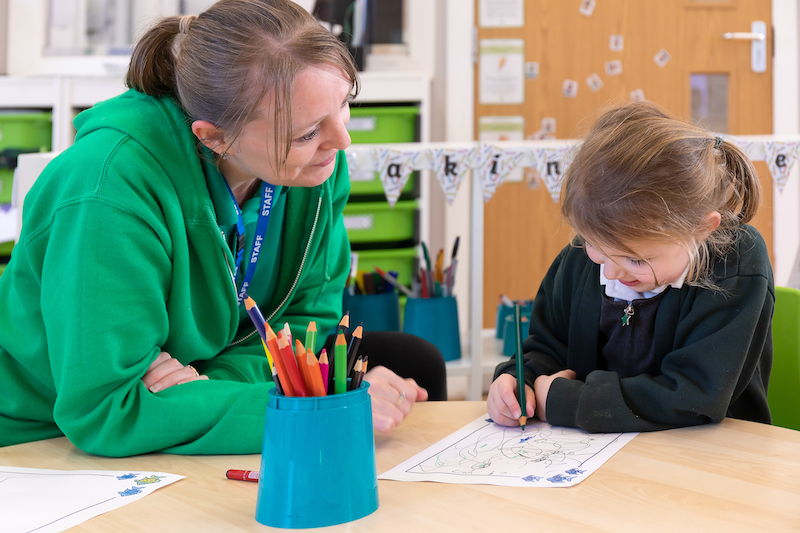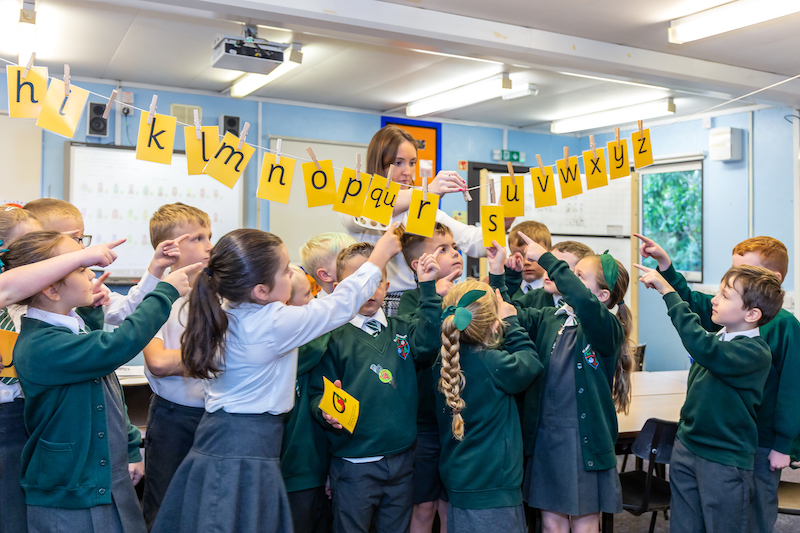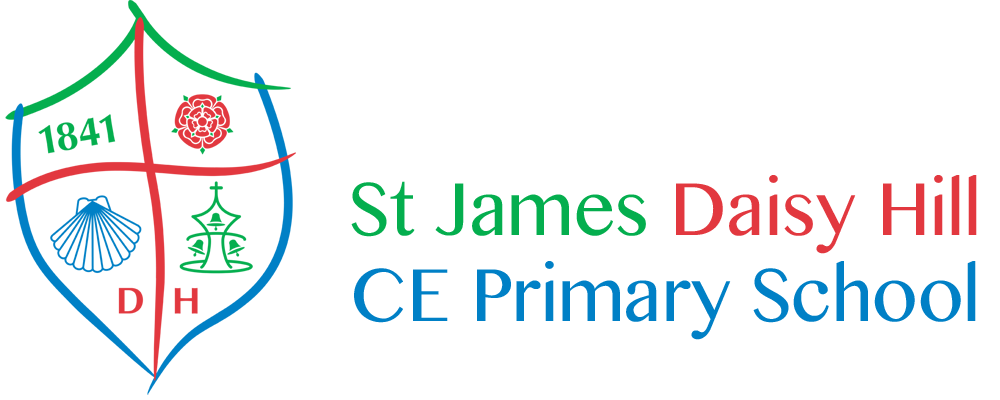
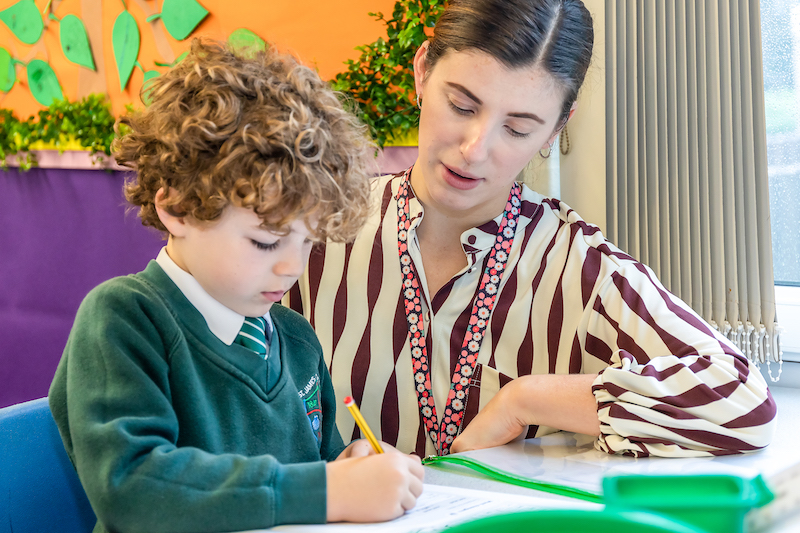
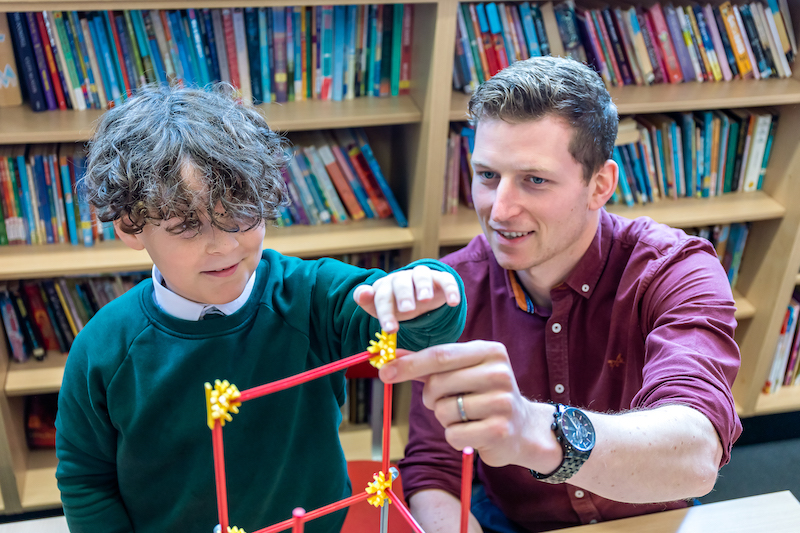
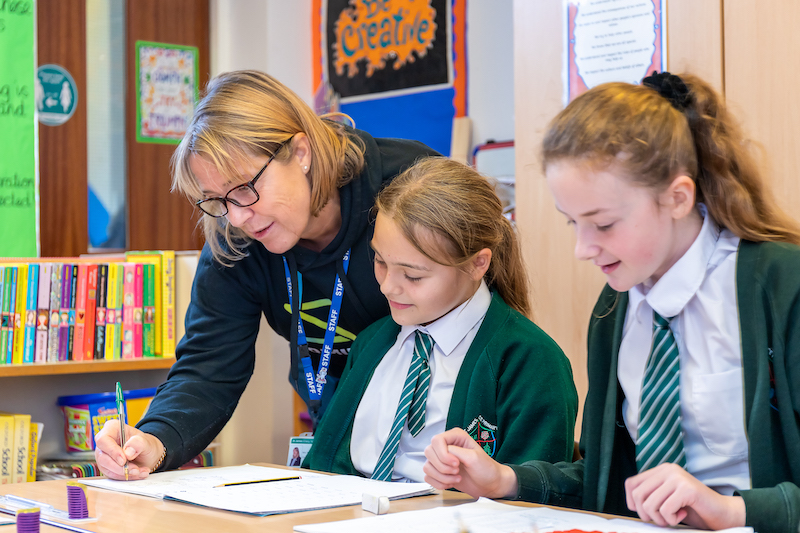
Special Educational Needs & Disability
How does St James approach the teaching of children with Special Educational Needs and/or a Disability (SEND)?
All pupils in school receive quality first teaching, this means that a range of teaching and learning styles are used and that appropriate learning objectives are set for all children with a curriculum matched to their needs. Some children require specific interventions in small groups or on a one to one basis.
How will I know how my child is doing in school?
The progress that your child is making and their attainments in comparison with National Age Related Expectations will be discussed with you at parents evenings in Autumn and Spring Terms. You will be able to discuss how well your child is doing in school at these meetings. There is also an informal parent drop in every week where class teachers are available and parents are welcome to look at pupil’s learning on the walls and in books. Mrs Bowden, the SENCO, is also available to meet with parents, please make an appointment.
Teachers use ongoing assessments to inform their planning. These assessments allow staff to monitor if children are making the desired amount of progress. Children’s progress is monitored through teacher’s formative assessments, Y1 Phonics Assessment, Termly tests, and end of Key Stage SATs. Assessment data is analysed by teachers, the SENCO and the Assessment Co-ordinator and any issues that arise are addressed. If staff have any concerns, they will contact parents.
What should I do if I think my child has a Special Educational Need or disability?
If you think that your child has a Special Educational Needs and/or a Disability (SEND), please make your concern known to the school by speaking initially to your child’s class teacher, who will raise this concern with the SENCO in school. The concern will be discussed with you and following this discussion, school will carry out the necessary checks to ensure your child’s needs are met. We will share our findings with you and agree the next steps for your child.
How does St James school involve children in their education and the decision making process?
One of the main principles is that all children are involved in planning their learning. All project learning follows the children’s interests so children are always kept involved with the path their project will take. Children are aware of their targets or next steps in their learning (age appropriate). English and Maths targets are an integral part of daily teaching and learning. Any specific social, emotional or behavioural targets are set with the individual children and referred to appropriately. In addition to this, children get feedback from teaching staff regarding immediate next steps in their learning, this may be verbal feeback or written comments in their books.
| Title | |
|---|---|
|
Equality Objectives 2023 228.29 KB |
Download |
|
Online Safety Policy – September 2023 541.29 KB |
Download |
|
GDPR Policy – September 2023 68.40 KB |
Download |
|
Volunteer Policy – April 2023 563.78 KB |
Download |
|
Admissions Policy – September 2023 135.92 KB |
Download |
|
Class Dojo Policy 2022 269.90 KB |
Download |
|
Healthy Eating Policy 2021 – currently under review 185.23 KB |
Download |
|
Complaints Policy – September 2023 160.58 KB |
Download |
|
Health and Safety Policy 2019 – currently under review 362.55 KB |
Download |
|
Transgender Policy – September 2023 271.07 KB |
Download |
|
Bad Weather Procedure – September 2023 100.29 KB |
Download |
|
PSHE & RSE Policy – September 2023 99.68 KB |
Download |
|
Charging and Remission Policy – October 2023 248.26 KB |
Download |
|
Accessibility Policy – September 2023 100.09 KB |
Download |
|
Attendance & Punctuality Policy – May 2023 151.13 KB |
Download |
|
Behaviour Policy – September 2023 144.86 KB |
Download |
|
Equality Policy – November 2022 99.11 KB |
Download |
|
SEND Policy – March 2023 105.85 KB |
Download |
|
Anti-Bullying Policy – September 2023 271.43 KB |
Download |
|
Safeguarding and CP Policy – September 2023 1.20 MB |
Download |
| Useful Websites | |
National Autistic Society |
We are the UKs leading charity for autistic people and their families. Since 1962, we have been providing support, guidance and advice, as well as campaigning for improved rights, services and opportunities to help create a society that works for autistic people. |
British Dyslexia Association |
The British Dyslexia Association is the voice for the 10% of the population that are dyslexic. |
Dyspraxia Foundation |
Supporting individuals and families affected by dyspraxia/DCD. |
Home – Bolton Start Well |
Leading Quality in the Early Years |
Oxford Owl |
Discover expert advice, educational resources and free eBooks to support children’s learning at primary school and at home, from Oxford University Press. |
Maths – Topmarks |
Searchable site of thousands of quality teaching resources, interactive resources, homework, exam and revision help. Useful for teachers, pupils and parents. |
BBC Bitesize |
Use BBC Bitesize to help with your homework, revision and learning. Find free videos, step-by-step guides, activities and quizzes by level and subject. |
Information and support services for Special Educational Needs and Disabilities for anyone aged between 0 to 25 can be found by following the link: SEND Local Offer – Bolton Council Website
